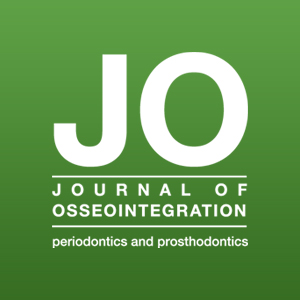Evaluation of biomechanical effects of different implant thread designs and diameters on all-on-four concept

Submitted: 30 October 2020
Accepted: 5 November 2020
Published: 10 September 2021
Accepted: 5 November 2020
Abstract Views: 1177
pdf: 753
Publisher's note
All claims expressed in this article are solely those of the authors and do not necessarily represent those of their affiliated organizations, or those of the publisher, the editors and the reviewers. Any product that may be evaluated in this article or claim that may be made by its manufacturer is not guaranteed or endorsed by the publisher.
All claims expressed in this article are solely those of the authors and do not necessarily represent those of their affiliated organizations, or those of the publisher, the editors and the reviewers. Any product that may be evaluated in this article or claim that may be made by its manufacturer is not guaranteed or endorsed by the publisher.


 https://doi.org/10.23805/JO.2021.13.03.1
https://doi.org/10.23805/JO.2021.13.03.1








